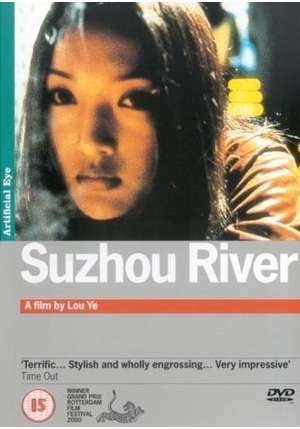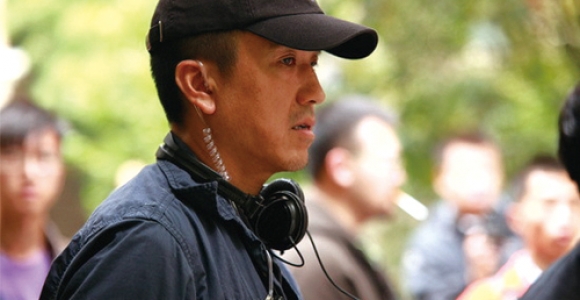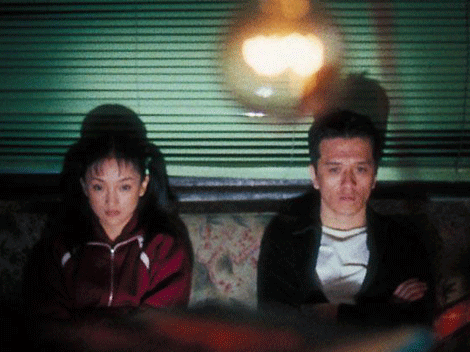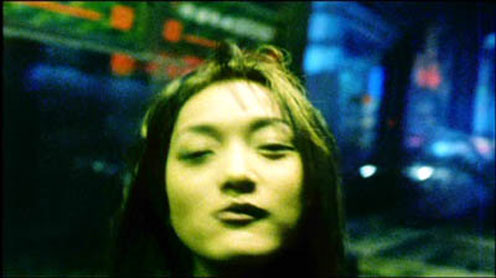On 19th this month,Chinese mainland director Lou Ye‘s new film Mystery is gonna be shown in Chinese theaters,which means his 10 year film ban in Chinese mainland is officially over.In today’s Classic Chinese Cinema series,I’m gonna introduce the first real masterpiece of a director I have tremendous respect for,Suzhou River is regarded by me as one of the top 10 Chinese romance films.The name of the film is a river runs across Shanghai,it used to be a channel between urban and suburban Shanghai,the hometown of the director,and the story unfolds above the water of the river.
The Banned Director
Director Lou Ye was born in Shanghai in 1965,he made all his first four films in Shanghai.Different from other outstanding Sixth Generation directors(Jia Zhangke,Zhang Yuan),his persistent pursuit of expressing his own mind and art costs him a lot.
His second film Suzhou River was not screened in its native China, as Lou Ye was banned from filmmaking for two years after screening his film at the International Film Festival Rotterdam without permission from Chinese authorities.
His fifth film Summer Palace was banned again,its sex scenes and political undertones made the film tinder for controversy in China, leading both the director, Lou Ye, and his producers into conflict with China’s State Administration of Radio, Film, and Television (SARFT). After screening Summer Palace in the 2006 Cannes Film Festival without government approval, the film was placed under a de facto ban in Mainland China, and its filmmakers officially censured.
His 6th film Spring Fever won the Best Script in Cannes 2009,but was still not shown here in China.
Now,the fighter is back,after being banned by his own country for 10 years,he came back with no compromises.
The Plot and Narration
The original screenplay is written by Lou Ye himself,based on his childhood spent on the bank of Suzhou River,he came up with a myth that comes close to a film everyone should be familiar with,Hitchcock’s Vertigo.The story is about a man’s fantasy,two identically looking women,and tragic romance.It’s narrated by a gentle male voice who is not the protagonist of the film,so it’s a third person narration,the story is lead by his introduction of what he saw and experienced in the past,and whatever he appears in the film,the camera is always from his point of view,which is in accordance with the narration.
The Style and Influences
From the opening shot of the decayed urban Shanghai,we can instantly sense the difference between his cinema and the cinema of the Fifth Generation director like Zhang Yimou and Chen Kaige,it has a modern look of Wong Karwai but a traditional heart of Hou HsiaoHsien,it’s not like anything that have been done in Chinese mainland cinema history,the style is more like Hongkong and Taiwan cinema.
As I said before,Hitchcock’s cinema is a big influence on this film.You can find so many resemblances between this one and Vertigo,the plot,the structure,the characters,the visuals,even the scores are similar if you listen to it carefully.Rear Window is another possible source of influence,if you think about the camera of the cinematographer as an eye of a voyeur.
The cinematic style of this film is heavily influenced by auteur like Jean Luc Gordard and Wong Karwai,the shaky shots of handheld camera throughout the film is an obvious technique Wong uses in his Chungking Express,also the neon light color and urban romanticism which are also Wong’s trademarks.You can also find the jump-cut technique which becomes famous in Gordard’s French New Wave milestone Breathless,and also the discussion of the contradiction between reality and fiction.
The Performance of Zhou Xun
This is one of the earliest role for Chinese actress Zhou Xun,and a tougher one than Kim Novak’s performance in Vertigo,because the two characters Zhou Xun plays have the opposite characteristics.Mu Dan is an average innocent girl who has so much passion for love and Mei Mei is an more mature character whose attitude towards love is doubtful.Zhou Xun played both to the extreme point,that’s a pretty amazing achievement for a young actress.
Banned in its homeland,but never banned in Chinese cinephiles’ hearts,this unique and rough romance film would always stay with us as a testament of eternal love.
Watch it here with English subtitles
Read other posts in Classic Chinese Cinema series



